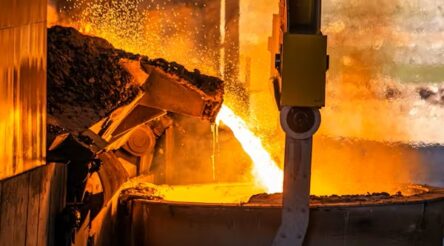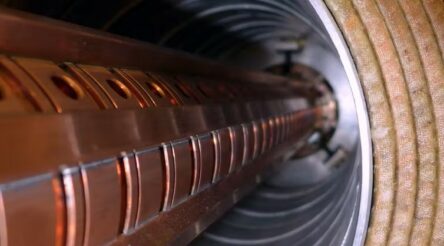Celebrating Australian Made — bespoke wool products specialist is a no-sew
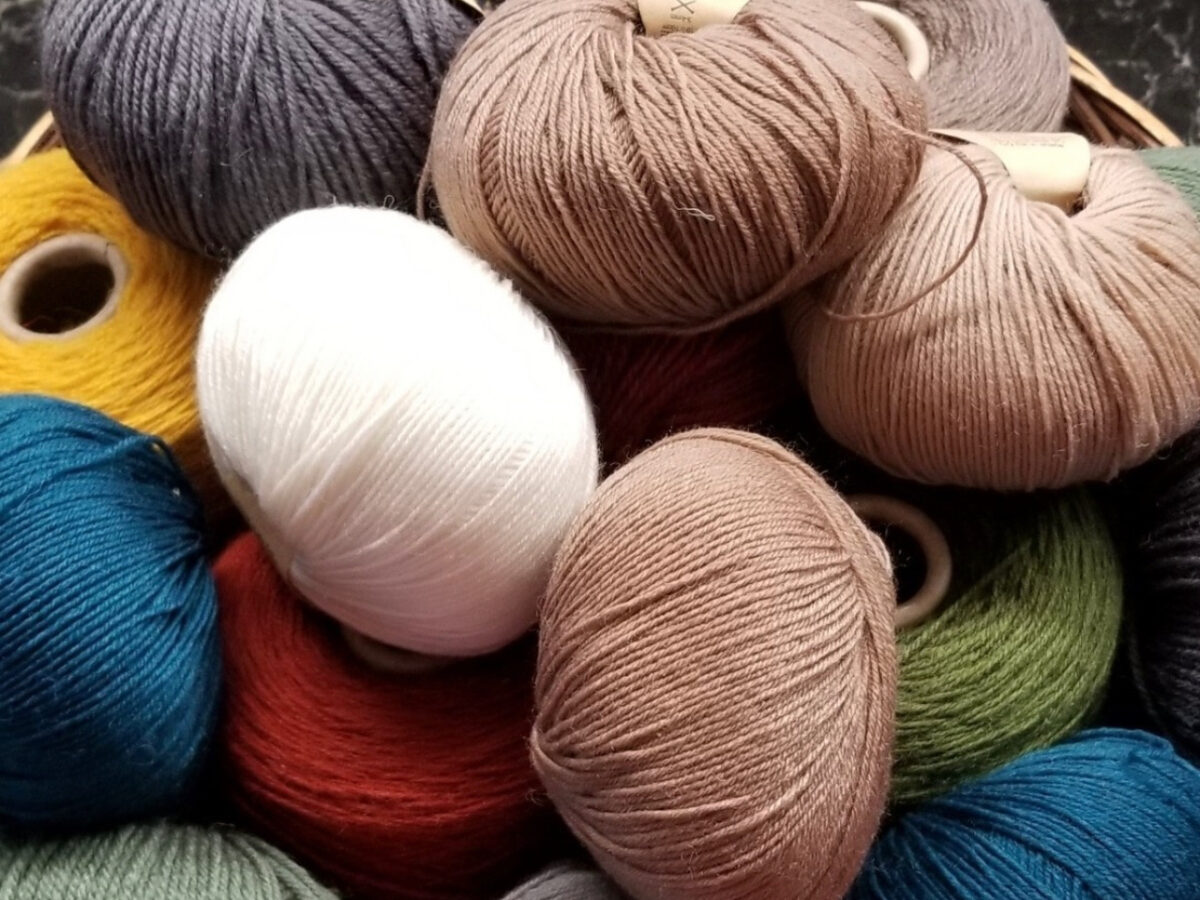
To close out the first week of Celebrating Australian Made, our editorial series sponsored by the Australian Made Campaign Limited, we consider Kilmaille Knits. Brent Balinski speaks to founder Sue McClure.
Sue and Malcolm McClure are fifth-generation wool growers, with mothers and grandmothers who were passionate knitters.
“Synthetics sort of came in during my childhood,” adds Sue.
“And I’ve always said throughout my career that wool is the fibre that all the others try to emulate. It's in our DNA I suppose.”
During 45 years as a textiles teacher, McClure had a lot of time to think about the qualities and uses of fibres. Towards the end of that career, she thought more and more about the negative impacts of synthetics.
“I realised that we're just trashing the planet with textiles; most of our landfill is textiles,” she tells @AuManufacturing.
“Most of that is synthetic, as in microfibre. And all that stuff that never really goes away. It ends up in our food chain. And in our water cycle.”
McClure began Pigeon Ponds, western Victoria-based Kilmaille Knits in 2020, combining a few of her passions. Wool and the textile industry, obviously, but also the belief that making and buying locally are important.
“I feel like during my lifetime being involved with textiles I’ve seen all our beautiful Australian made [companies] vanish or be sold offshore,” she shares.
“And I've always supported local, because I’ve been living in rural Australia and I tend to try and do all my shopping in our small local community shops rather than go to the regional centres and support the multinationals.”
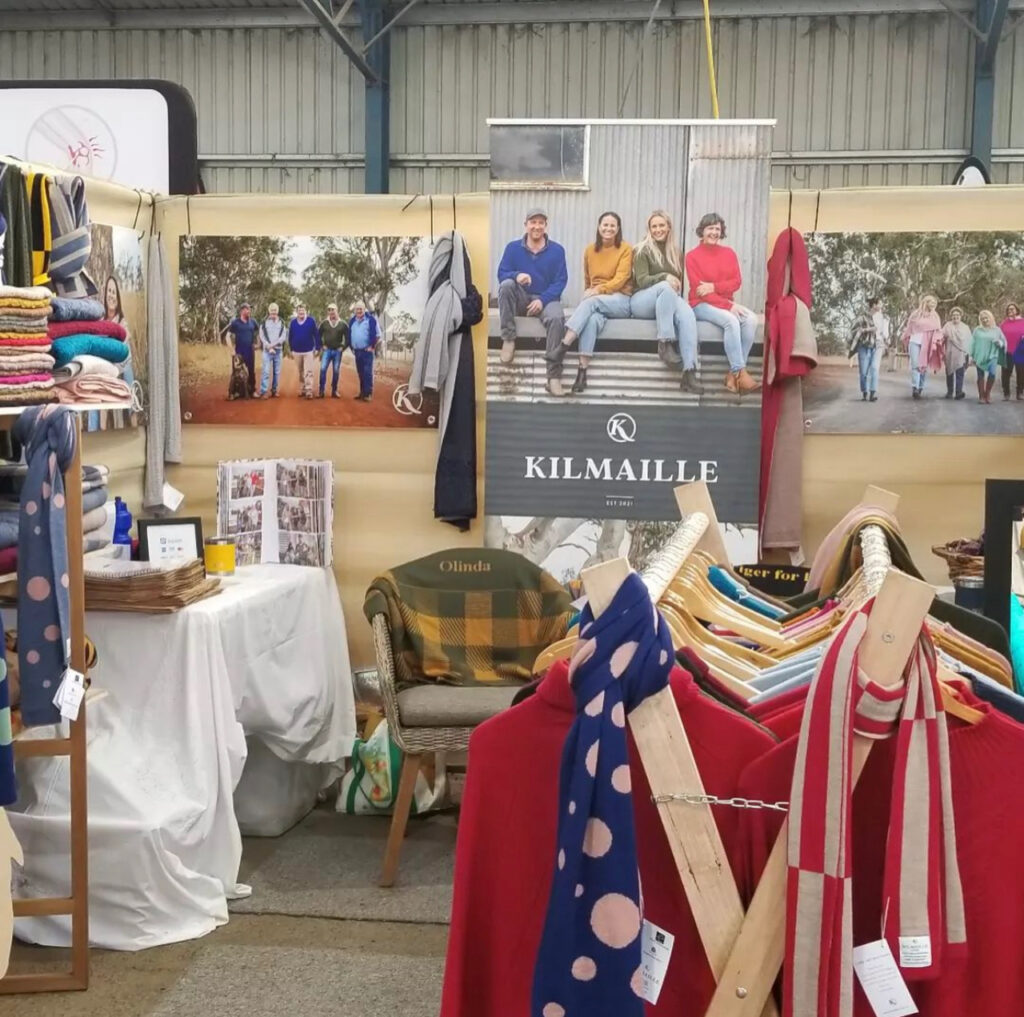 Kilmaille makes items including throws, scarves, wraps and jumpers out of Australian merino.
Kilmaille makes items including throws, scarves, wraps and jumpers out of Australian merino.
Key to its bespoke approach is a Mach2Vs by Shima Seiki, a six-decade-old Japanese maker of high-tech knitting machines (and a multinational, to be fair.)
McClure spent three weeks in March at Shima Seiki headquarters with six other Australians for training on the machine, which has its own CAD/CAM software and is able to make one-piece, 3D knitted garments.
“Most other knitwear is either cut and sew, or if the panels are knitted as a shape, like a sleeve shape, they’re still sewn. So there's still quite an element of wastage,” she explains.
“This just drops out in one piece and you just pull a few things and tuck a few in and you’re done.”
Most of what Kilmaille makes is custom-knitted.
“Even though we go into shops and buy standard fittings, most of us aren’t standard fittings. A classic example is I knitted all the cricket jumpers for our local football team this last summer,” says McClure.
“One of those for those young lads is a size large, as in circumference around his chest and weight, but he is six foot six. So his body length and his arm length doesn't match a large. So I custom-knit one to fit him. So I can just make a few changes on the program and knit it.”
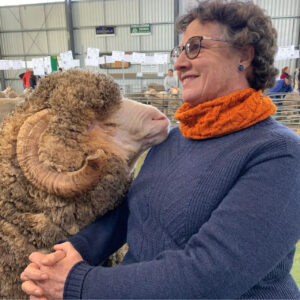
The production technology also simplifies the supply chain and takes a custom-made blanket, for example, down from 18 months to a day to make, according to McClure.
All of the wool used is grown on a Beaufront Station in Tasmania, processed at the Tollegno Mill in Italy, and ordered from a buyer in Sydney.
Most of Kilmaille’s sales come via leads from markets, though their garments feature in a couple of higher-end shops that share McClure’s passion for quality wool.
She confesses that she gets irked by a product that is the antithesis of fast fashion getting compared in price to fast fashion, and is at the stage in her life where there’s no time for people who don’t value what she does.
When the topic of expanding the business comes up, McClure is again frank. Wool is in her DNA; a desire for fuss is not.
“I haven't got to the stage where I employ anyone, and I don't want to get to this stage where I get stressed about it,” she says.
“When it gets to that stage, I'll probably stop knitting. Or pull back and just knit for who I want to knit for.”
Pictures: credit instagram.com/kilmailleknits
 Celebrating Australian Made is an editorial series by @AuManufacturing, created in cooperation with the Australian Made Campaign Limited for Australian Made Week.
Celebrating Australian Made is an editorial series by @AuManufacturing, created in cooperation with the Australian Made Campaign Limited for Australian Made Week.
@aumanufacturing Sections
Analysis and Commentary Awards casino reviews Defence Gambling Manufacturing News Online Casino Podcast Technology Videos


